Contract Security

What is the difference between a regular contract and a smart contract ?
A regular contract and a smart contract differ in terms of their **nature**, **enforceability**, **cost**, **speed**, and **transparency**. Below are the key differences between these two types of contracts: ## Nature ### Regular Contract - Legal agreement between two or more parties. - Typically written in natural language (e.g., English). - Governed by local laws and regulations. ### Smart Contract - Self-executing contract with the terms directly written into code. - Deployed on a blockchain network. - Enforced by the underlying code and cryptographic protocols. ## Enforceability ### Regular Contract - Relies on legal institutions for enforcement (e.g., courts). - May involve mediation or arbitration processes. - Penalties for breach can be monetary or involve other forms of relief. ### Smart Contract - Autonomously executes when predetermined conditions are met. - Enforcement is decentralized and automated. - Penalties for breach are typically programmed into the contract logic. ## Cost ### Regular Contract - Can be costly due to legal fees, notary services, and potential litigation expenses. - Involves overhead of paper-based record keeping and manual processing. ### Smart Contract - Generally less expensive because it eliminates intermediaries. - Costs associated with blockchain transaction fees and contract deployment. ## Speed ### Regular Contract - Time-consuming process from negotiation to signing and execution. - Settlement times can vary widely depending on the complexity of the agreement. ### Smart Contract - Faster execution once the conditions are met. - Real-time settlements possible due to automation. ## Transparency ### Regular Contract - Limited transparency; only involved parties have access to the contract details. - Requires trust in the counterparty to disclose all relevant information. ### Smart Contract - High transparency; contract code and transactions are visible on the blockchain. - Trust is placed in the immutable and verifiable nature of the blockchain.

What is a smart contract ?
Smart contracts are self-executing contracts with the terms of the agreement between buyer and seller being directly written into lines of code, which exist across a distributed, decentralized blockchain network. They allow for transactions and the transfer or distribution of cryptocurrencies to be executed automatically without the need for a central authority, legal system, or external enforcement mechanism. Smart contracts are autonomous, immutable, traceable, and decentralized. They have various use cases such as cryptocurrency transactions, insurance claims, supply chain management, real estate transactions, gambling and betting, and legal documents. The benefits of smart contracts include efficiency, transparency, security, speed, and accuracy. However, there are challenges and considerations such as code quality, lack of legal recognition, interoperability issues, and privacy concerns.

How can schools address the issue of contract cheating, where students pay others to complete their assignments or exams ?
Addressing contract cheating in schools is crucial for maintaining academic integrity. Effective measures include using advanced plagiarism detection tools, educating students on academic integrity, encouraging open discussions, providing support services, and collaborating with parents and guardians. These strategies can deter students from engaging in contract cheating and promote a culture of original work.
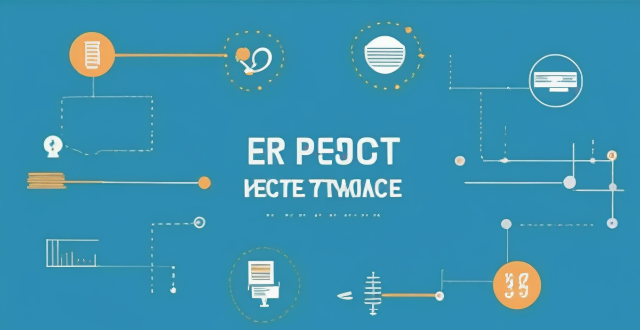
How do smart contracts work ?
Smart contracts are self-executing contracts with the terms directly written into code, operating on a decentralized blockchain network. Key features include autonomy, trustless transactions, immutability, and traceability. The working mechanism involves deployment, execution based on predefined conditions, verification through consensus algorithms, and settlement updating contract states. Benefits encompass efficiency, transparency, security, and the removal of intermediaries. Challenges include legal recognition, coding errors, and handling complex logic. Smart contracts revolutionize traditional contract law by enabling secure, automated, and transparent transactions on blockchain networks.
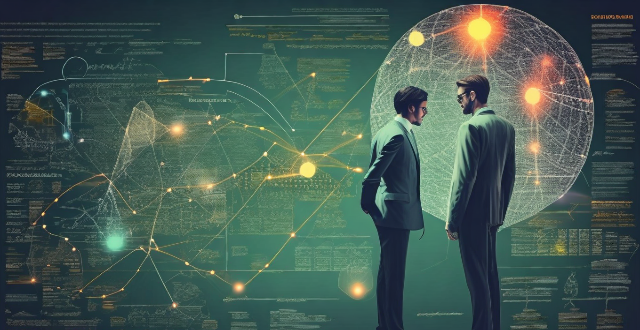
What are the potential risks associated with smart contracts ?
Smart contracts revolutionize digital transactions but pose risks like code vulnerabilities, legal uncertainties, lack of human oversight, interoperability issues, and privacy concerns. Users must understand these potential pitfalls before engaging in smart contract agreements to mitigate adverse outcomes.

What are the legal implications of using smart contracts ?
Smart contracts, self-executing contracts with terms written in code on a blockchain, raise legal questions about enforceability, jurisdiction, privacy, security, and regulatory compliance. Best practices include consulting a legal expert, clearly defining terms, considering jurisdiction, and prioritizing privacy and security.

What are the benefits of using smart contracts ?
Benefits of Using Smart Contracts Smart contracts are self-executing contracts with the terms of the agreement between buyer and seller being directly written into lines of code. They offer a range of benefits including automation, transparency, security, efficiency, and cost savings. By automating processes and reducing the need for intermediaries, smart contracts can save time and money, as well as reduce the risk of errors or fraud. They are secured by cryptography, which makes them extremely difficult to hack or manipulate. This security feature can be particularly useful in situations where sensitive information needs to be shared between parties. Smart contracts can also lead to cost savings by reducing the need for intermediaries or third parties. As blockchain technology continues to evolve, it is likely that we will see even more innovative uses for smart contracts in the future.

Are there any hidden fees or contracts associated with upgrading my broadband ?
When upgrading broadband, beware of early termination fees, equipment rental costs, and installation charges. Also, understand contract minimums and auto-renewal clauses before committing.
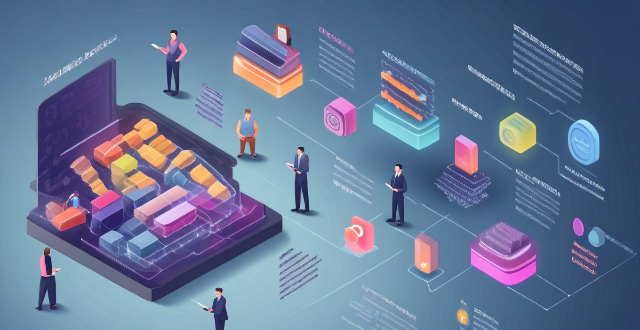
What are smart contracts in the context of blockchain ?
Smart contracts are self-executing digital agreements that operate within the blockchain, providing a decentralized and trustless system for transactions. They are created using specific programming languages and deployed onto a blockchain platform. Once conditions are met, smart contracts execute automatically, with each node verifying the process to ensure accuracy. Applications include cryptocurrencies, supply chain management, real estate, insurance, and legal agreements. However, challenges like immutability, complexity, legal standing, and privacy concerns must be addressed.

Can smart contracts be used in traditional businesses ?
Smart contracts, self-executing contracts with terms written into code, can be used in traditional businesses but have limitations such as legal issues and complexity. They offer advantages like transparency, efficiency, and security but also present challenges like lack of human touch and privacy concerns. Businesses should carefully consider their specific needs before adopting this technology.

How secure is decentralized finance compared to traditional finance ?
The text provides a comparative analysis of the security aspects of decentralized finance (DeFi) and traditional finance (TradFi). DeFi relies on blockchain technology for peer-to-peer transactions, while TradFi operates through centralized institutions. Both systems have unique security features and risks, with DeFi offering transparency and automated contract execution but facing smart contract vulnerabilities and lack of regulatory clarity. TradFi benefits from regulatory oversight and physical security measures but is susceptible to systemic risks and cybersecurity threats. The choice between DeFi and TradFi depends on individual preferences and risk tolerance, and it's crucial to stay informed about new developments in the evolving financial landscape.

How does two-factor authentication enhance security ?
Two-factor authentication (2FA) is a security process that requires two different factors to verify the user's identity, enhancing security by reducing the risk of unauthorized access, providing alerts for suspicious activities, protecting against various types of attacks, increasing user confidence in online services, and helping maintain compliance with security standards. Its implementation should be carefully planned considering both security requirements and user convenience.
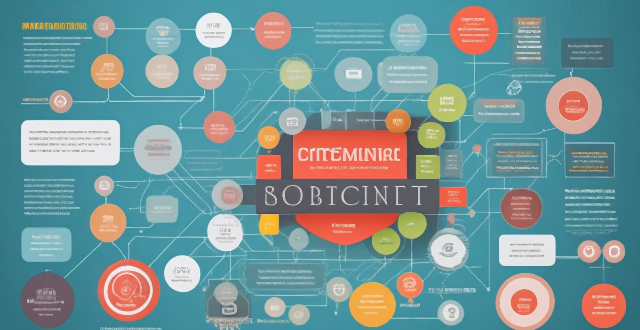
How can smart contracts be used to streamline financial transactions ?
Smart contracts can streamline financial transactions by automating processes, reducing costs, and increasing efficiency. They can automate payments and transfers, act as escrow services, create loan agreements, streamline insurance claims, and facilitate trading and exchanges of financial assets. As blockchain technology evolves, we can expect more innovative uses for smart contracts in the financial industry.

What are the security concerns related to Smart Grid Technology ?
Smart grid technology, which uses digital communication technologies to monitor and control the flow of electricity, offers benefits such as increased efficiency and reliability. However, there are security concerns that need to be addressed, including cyber attacks, data breaches, insider threats, physical security risks, and interdependencies with other critical infrastructures. It is essential to implement strong cybersecurity measures, strict access controls, and robust physical security protocols to protect the system's integrity and confidentiality.
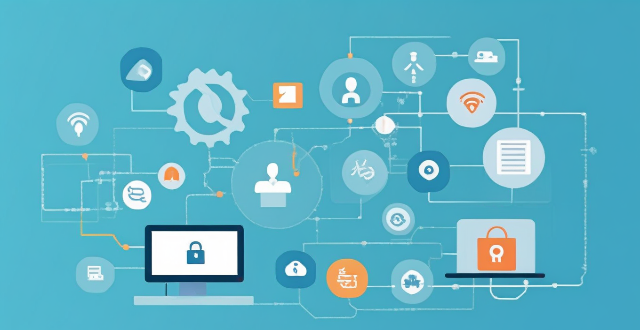
What are the security concerns related to IoT ?
The article discusses the major security concerns related to the Internet of Things (IoT), such as data privacy and confidentiality, device security, network security, physical security, and software vulnerabilities. It emphasizes the need for implementing appropriate security measures to ensure the secure deployment of IoT devices and protect sensitive information from unauthorized access.
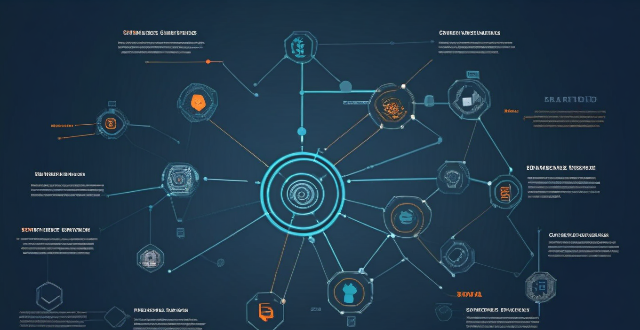
What are the potential drawbacks or challenges of implementing blockchain ?
The article discusses several potential issues with blockchain technology, including lack of regulation, scalability concerns, security vulnerabilities, and interoperability challenges. It highlights the need for clear legal and compliance guidelines, tax treatment standards, improved transaction speeds, reduced energy consumption, ongoing security measures, thorough smart contract testing, and increased standardization across different blockchains. Overall, while blockchain offers many potential benefits, these challenges must be addressed in order for the technology to reach its full potential.

How do firewalls contribute to network security ?
Firewalls are crucial for network security, offeringFirewalls are crucial for network security, offering, blocking unwanted connections, preventing preventing network intrusion, enforcing security policies, providing VPN support, integrating with other security systems, protecting against known threats, offering customizable features, ensuring scalability and performance, and reducing the risk of data breach.

Can blockchain technology improve data security and privacy ?
Blockchain technology has been touted as a revolutionary tool that can improve data security and privacy. Its decentralized nature, encryption, and transparency make it difficult for attackers to compromise the network. Additionally, its anonymity, control over personal data, and smart contracts enhance privacy by giving individuals more control over their information.
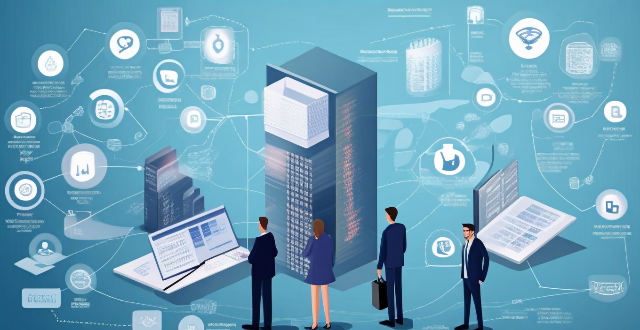
How do remote education platforms ensure data privacy and security ?
Remote education platforms ensure data privacy and security through encryption, access controls, two-factor authentication, regular security audits, and data retention policies. These measures help protect user data during transmission and storage, restrict access to sensitive information, add an extra layer of security, identify and fix vulnerabilities, and minimize the risk of data breaches.

How does climate change affect food security and nutrition ?
Climate change significantly impacts global food security and nutrition by causing extreme weather events, altering ecosystems, reducing water availability, affecting marine life, posing agricultural challenges, and diminishing nutrient intake. Mitigation strategies include sustainable agriculture practices, dietary diversification, and research and development to ensure future food security and nutrition.

What are some tips for getting through security quickly and efficiently ?
Getting through security quickly and efficiently requires preparation and knowledge. Pack smart by following the 3-1-1 rule for liquids, keeping electronics separate, storing medications in their original containers, and wearing easy-to-remove shoes and jackets. Know the rules by researching specific security policies, having travel documents ready, and avoiding restricted items. At the security checkpoint, prepare your belongings by placing metal objects in your carry-on bag and separating liquids. Follow procedures by staying alert, complying with instructions, and moving swiftly. After security, reorganize and regroup by repacking liquids and reassembling any removed accessories or outer layers. Stay informed about any updates to security procedures before your next trip.

What are the latest trends in network security protection ?
Network security is a crucial aspect of modern computing, and it's constantly evolving to keep up with new threats. Here are some of the latest trends in network security protection: - AI and ML are becoming increasingly popular for detecting and responding to cyber threats. - IoT devices have poor security features or lack them altogether, making them easy targets for hackers. - With more businesses moving to the cloud, ensuring data is secure is essential. - Threat intelligence involves collecting information about potential threats and using it to improve defenses. - The zero trust model assumes that no one should be trusted by default, including those within an organization's network.

What are the main threats to communication security ?
The text discusses the main threats to communication security, which include eavesdropping and unauthorized access, malware and viruses, social engineering and phishing, insider threats, and DoS attacks. It also provides mitigation strategies for each threat, such as encryption, secure networks, physical security, antivirus software, firewalls, software updates, awareness training, email filters, multi-factor authentication, access controls, monitoring and auditing, termination procedures, rate limiting, content delivery networks (CDNs), and intrusion detection systems (IDS).

What are the benefits of hiring a sports agent for career management ?
Hiring a sports agent can bring numerous benefits to an athlete's career management, including negotiating contracts and deals, marketing and branding assistance, legal representation, and career planning and development. By working with an experienced sports agent, athletes can focus on their performance while leaving the business side of their careers in capable hands.

What are the potential impacts of climate conflicts on global security ?
Climate conflicts have the potential to significantly impact global security by causing economic disruption, political instability, and even armed conflict. Governments and international organizations must recognize this issue and take action to mitigate the effects of climate change.

What are some examples of how climate change has affected international security ?
Climate change has significant implications for international security, including resource scarcity and competition, displacement and migration, state fragility and failed states, environmental refugees, and national security threats. These challenges require global cooperation and strategic planning to mitigate their effects on international stability.

How does cryptocurrency work ?
Cryptocurrency is a digital or virtual currency that uses cryptography for security, operating independently of a central bank. It allows direct transfers between individuals without intermediaries like banks. Key components include cryptography (public and private keys, encryption, decryption), blockchain technology (decentralization, transparency, immutability, consensus mechanism), mining (Proof of Work, Proof of Stake, mining rewards, network security), and smart contracts (automation, efficiency, security, transparency). These technologies work together to create a secure, decentralized, and transparent digital payment system with fast, low-cost, and borderless transactions while maintaining user privacy and security.

Does restrictive immigration policy improve national security ?
The text discusses the complex question of whether restrictive immigration policy enhances national security. It explores various aspects including economic impact, social cohesion, international relations, and internal security dynamics to provide a nuanced understanding. The text concludes that while a restrictive immigration policy might seem appealing from a national security standpoint, it is not a silver bullet, as benefits must be weighed against potential negative impacts on different factors. A balanced approach that ensures thorough vetting without undue restrictions might prove more effective in enhancing national security in the long term.